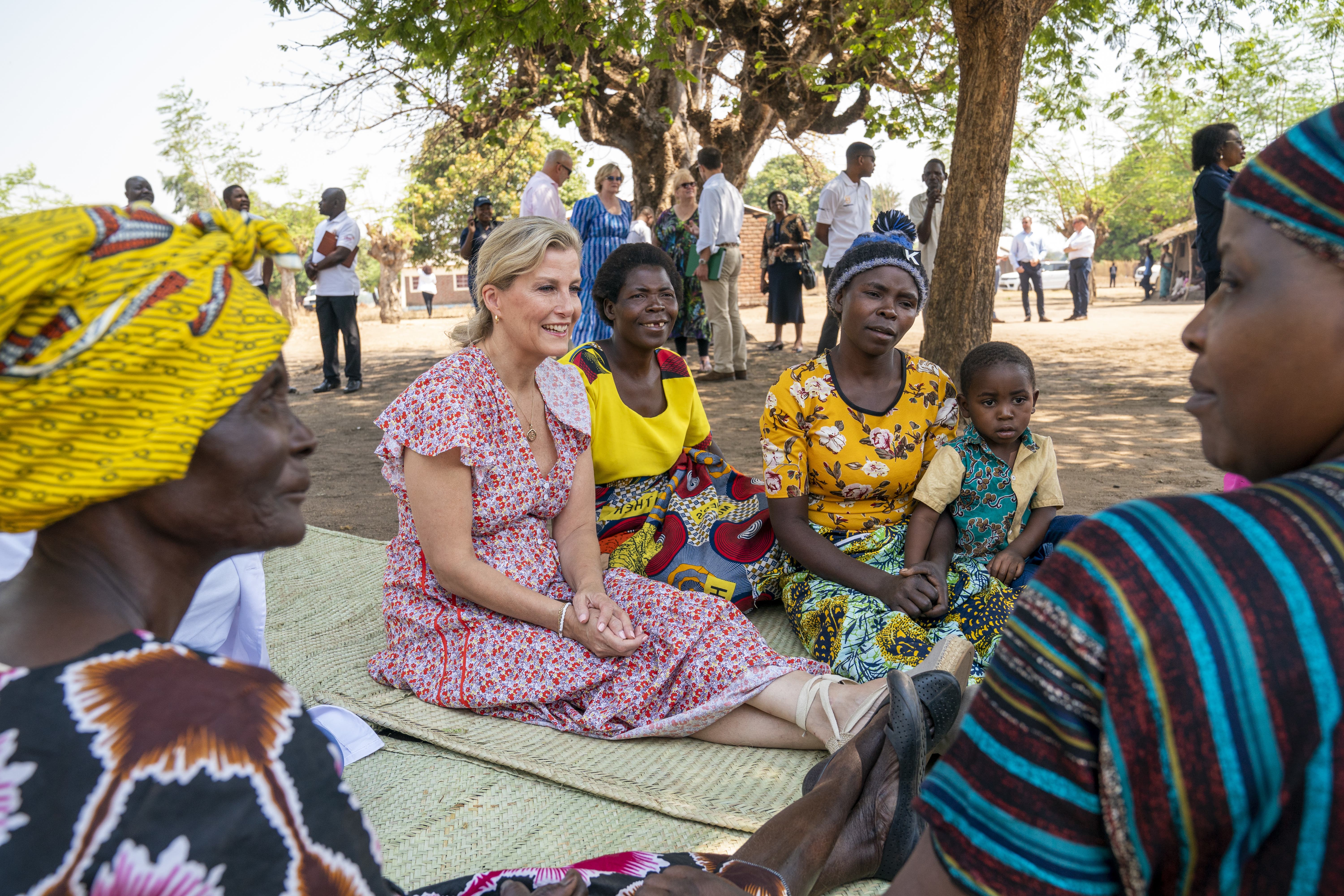Sophie says Queen was ‘so happy’ at Malawi’s elimination of trachoma eye disease
The monarch was aware before her death that the Countess of Wessex would be returning to the country soon to celebrate the development.

Your support helps us to tell the story
From reproductive rights to climate change to Big Tech, The Independent is on the ground when the story is developing. Whether it's investigating the financials of Elon Musk's pro-Trump PAC or producing our latest documentary, 'The A Word', which shines a light on the American women fighting for reproductive rights, we know how important it is to parse out the facts from the messaging.
At such a critical moment in US history, we need reporters on the ground. Your donation allows us to keep sending journalists to speak to both sides of the story.
The Independent is trusted by Americans across the entire political spectrum. And unlike many other quality news outlets, we choose not to lock Americans out of our reporting and analysis with paywalls. We believe quality journalism should be available to everyone, paid for by those who can afford it.
Your support makes all the difference.The Countess of Wessex has told how her “dear mother-in-law” the late Queen was “so happy” for the people of Malawi at the country’s elimination of the eye disease trachoma.
Sophie, in a speech in Malawi to mark World Sight Day, said the Queen knew the summer before she died that the countess would be returning to the southern African nation soon to celebrate its success in battling the condition, which can cause blindness.
The countess, global ambassador for the International Agency for the Prevention of Blindness (IAPB), said: “We owe a dept of thanks to Her late Majesty for this incredible legacy and we say ‘zikomo’ (thank you).”
The Queen Elizabeth Diamond Jubilee Trust Fund focused – on the instruction of the Queen – on offering financial support to help combat avoidable blindness across the Commonwealth including in Malawi.
Sophie, who is on an official visit to a host of African nations, travelled to Malawi five years ago as vice patron of the Trust, and said the Queen had been “so moved” to hear of the work being carried out.
The Queen died on September 8, having spent the summer on her beloved Balmoral estate being visited by her family.
The countess said on Thursday: “The success we celebrate today means that future generations of Malawians will not have to face the high risk of blindness caused by trachoma – the irritation, the terrible pain, the scarring and the darkness, nor the prospect of not being able to learn, work or cook without help and support.
“Her late Majesty Queen Elizabeth the Second, my dear mother-in-law, was so proud of the Commonwealth and all that it stood for.
“Last time I returned from Malawi, when I had travelled on her behalf, as vice patron of her Trust, I told her all about my visit and she was so moved by the amazing work taking place here.
“This summer, before she passed away, she also knew that I was returning to Malawi and why.
“She knew of Malawi’s achievement and was so pleased that this was made possible by the fund, with eyesight being its principle objective. She was so happy for Malawians.”
Sophie said she had a “heart full of joy” to be back in Malawi again to witness the formalisation of the achievement, saying: “Today is a day that I will remember for the rest of my life.”
She brought with her a personal letter from the King to the country’s president, Lazarus Chakwera, expressing his congratulations.
Charles wrote: “This is a remarkable success, and a true testament to all those whose hard work, dedication and commitment has led to Malawi becoming the first country in Southern Africa to eliminate this devastating, neglected tropical disease as a public health issue.”
Malawi is the first country supported by the Trust to reach the milestone of trachoma elimination.
During her trip, Sophie visited Mgawi Village where she met eye surgery patient Litens Dalali at her home following her treatment for chronic trachoma. She was joined by surgeon Gladys Ntwana.
The countess sat on a mat on the ground as she chatted to the woman and met her family, stroking the head of one youngster as the child lay cuddled against a female relative.
She also travelled to the Maganga Clinic in Salima to meet others who have benefitted from medical treatment.